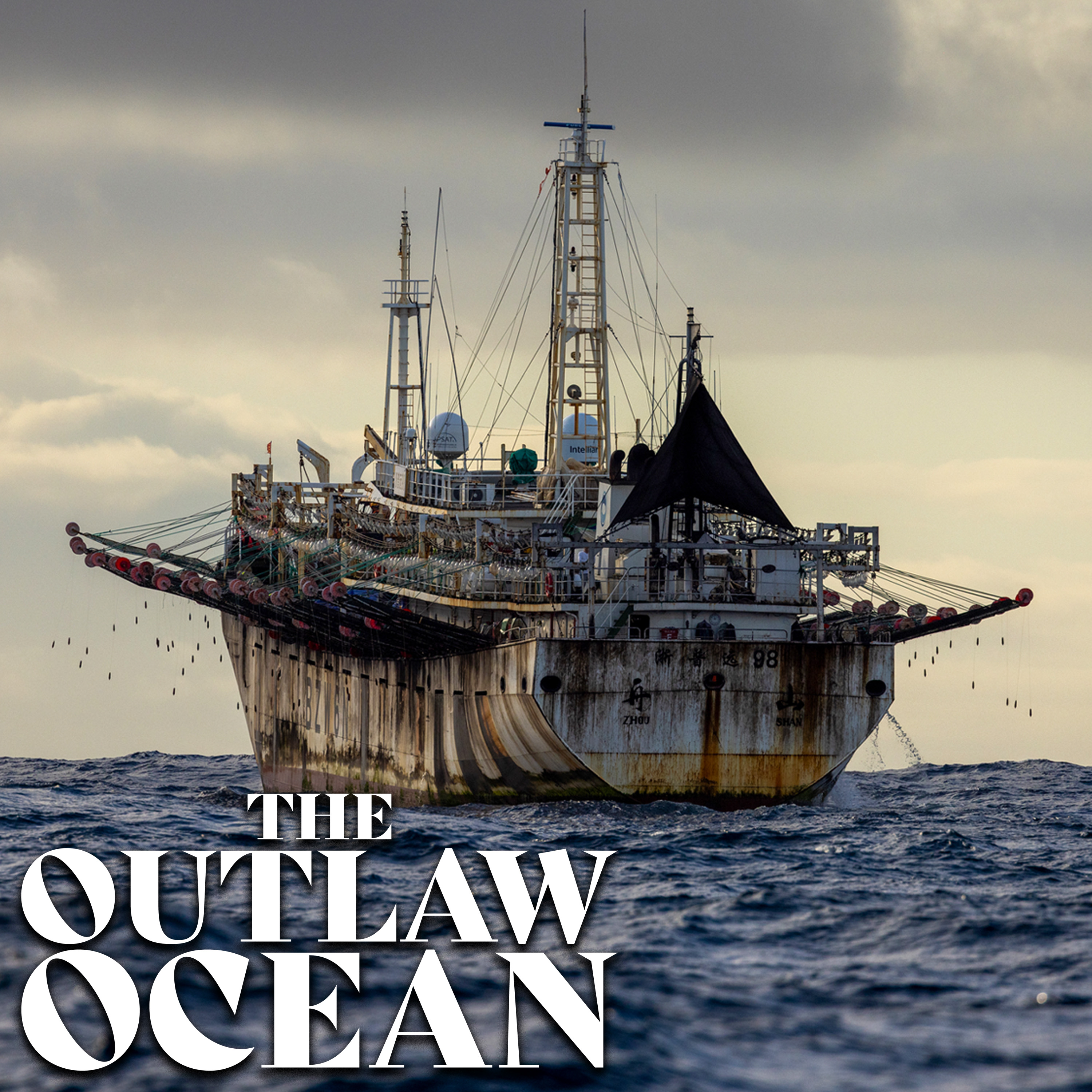S2 E6: The undisputed superpower of the seas (China Pt. 1)
Spread across the Earth’s oceans, the Chinese distant-water fishing fleet is the single largest armada in human history. This three-part series is an unprecedented investigation into their secretive fishing practices. The fleet is so gargantuan that even the Chinese government can’t account for all its vessels. We do know it has hauled in more than 35 billion dollars worth of catch per year and sold it across the globe — and yet, almost nothing was known about its practices. That is, until the Outlaw Ocean team started asking questions, and eventually managed to get aboard.
Episode highlights:
- Averaging one dead body every six weeks, mostly-Chinese fishing vessels have been dropping their deceased off in Uruguay’s coastal capital for years. But in 2021, an Indonesian deckhand named Daniel Aritonang arrives clinging to life. He’s conscious enough to say he'd been beaten, tied up by the neck, and starved for days.
- We learn Daniel’s story is shockingly common in the world’s Chinese-run fish processing infrastructure. It's a realm where health and human safety are secondary to meeting quotas and where forced labour and human rights abuses are rampant. We learn how vulnerable people like Daniel are recruited, and how routinely they never make it home.
- The team is convinced that they need to speak directly to the crew on one of these vessels. They themselves are shocked when a captain agrees to let them aboard. Even more surprising, a minder briefly leaves host Ian Urbina alone with the crew and immediately some men plead to be rescued.
Press play and read along
Transcript
Transcript is processing—check back soon.
The Outlaw Ocean — S2 E6: The undisputed superpower of the seas (China Pt. 1)





